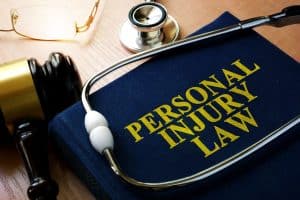How Does the Discovery Process Work in a Personal Injury Case?
 Personal injury lawyers use different methods to determine how an accident happened, and who is responsible. These methods include investigating the scene of the accident, speaking with police, and taking photographs and videos of the accident site and car damage. Other methods may include working with engineers and product safety experts to show that some part of the vehicle was defective. Personal injury lawyers work with your doctors and medical team to verify what injuries you have, and how those injuries are making your life difficult.
Personal injury lawyers use different methods to determine how an accident happened, and who is responsible. These methods include investigating the scene of the accident, speaking with police, and taking photographs and videos of the accident site and car damage. Other methods may include working with engineers and product safety experts to show that some part of the vehicle was defective. Personal injury lawyers work with your doctors and medical team to verify what injuries you have, and how those injuries are making your life difficult.
An important part of showing that defendants should be held liable, and that you deserve the maximum amount of damages possible for your injuries, is the discovery process: “the formal process of exchanging information between the parties about the witnesses and evidence they’ll present at trial.” What is revealed during discovery often allows us to settle personal injury claims without a trial, but its primary focus is to prepare our attorneys to present a case before a jury.
There are three basic parts to the discovery process.
What are interrogatories?
Interrogatories are written questions that each side can submit to the other side. Accident victims’ attorneys can submit written questions to defendants such as property owners, oil field owners, and car and truck drivers. There’s fair play in the discovery process, which means the defendants also have the right to ask you or anyone who files a lawsuit written questions. Generally, each side has 30 days to answer the questions, which must be answered under oath.
Most lawyers work with their clients to ensure the questions are answered accurately. While some defendants answer fully and honestly, many defendants provide as little information as they can to make it more difficult for you to prove your case. The back and forth between questions and answers – and requests for more answers – can take a lot of time. These delays and denials are one of the reasons lawyers use a second method of questioning called depositions.
What is a deposition?
Depositions are oral questions each victim can ask each defendant, and vice-versa. The oral answers are also given under oath. There are many ways the depositions differ from interrogatories, and many reasons why cases are so often “won” (or “lost”) at the deposition phase of the case.
The following people are present at depositions: You, your lawyer, the defendant, the defendant’s lawyer, and a stenographer. The stenographer formally makes a record of everything that is said at the deposition.
Unlike interrogatories, each side can also depose people/witnesses who are not a party to the lawsuit. The witnesses can be deposed on the same day as the parties are deposed. Witnesses, especially professional witnesses, are normally deposed on different days than the day you give your deposition.
What you should know about depositions
- Your lawyer will prepare you for the deposition. While your lawyer can’t tell you what to say, we normally have a pretty good idea of what questions the defense lawyers will ask. We’ll let you know what questions will likely be asked. We may even conduct a dry run. We’ll explain some of the dos and don’ts. We’ll recommend that you wait a second before answering the question because we may object to the question or ask for clarification. You should be sure you understand the question. If you don’t, you need to say you don’t understand – don’t guess. If you don’t know the answer, it’s OK to say you don’t know.
- There is limited back and forth. Your lawyer will ask question after question after question of the defendants and the witnesses. There’s no do-over. Unless a lawyer objects to the question being asked, the people being deposed are required to answer the questions. Unlike an interrogatory, you can’t check with your lawyer to see if you’re answering the question the correct way.
- There’s no rebuttal in depositions. The purpose of the deposition is for each side to find out as much as they can about the other side’s case as possible. The deposition is not a preliminary trial. We will not ask you to rebut the things the defendants are saying. We will not contest the answers. We want the defendants who caused your injuries to say everything they know about the case, including information they’re afraid to volunteer.
- They establish credibility. One of the goals of a deposition is to put the defendant’s version of the accident on the record so he or she can’t change the story later. Our lawyers keep the record of the deposition the stenographer prepares. At trial, if the defendant says he was traveling 10 mph when he said 20 mph at the deposition, we’ll introduce the 20 mph statement at trial to show the defendant isn’t credible. The defense lawyers will use the same tactic with you.
One thing to note is that professional depositions – examinations of professionals and experts that help bolster your case – may be recorded on video. A video, by definition, shows the doctor and records his/her answers. Like standard depositions, the purpose of the deposition is for the defense lawyers to understand your injuries and how the injuries are affecting you. Video depositions are used because they are a way of having a jury hear your doctor’s thoughts without your doctor actually being in the courtroom. The main reason for using a video deposition instead of having your doctor testify is that doctors often charge much less for a video deposition than testifying in court.
What are production of document requests?
This is third part of the discovery process. Each side can request that the other side produce any documents or written evidence that is relevant to the case. For example, we may ask to see the insurance policies of the defendants. If a property owner caused you to slip and fall, we’ll ask to see any records of repairs to the property and any evidence of formal complaints about the property.
Larson Law has been a strong advocate for personal injury victims in North Dakota for more than 40 years. We’ll guide you through each phase of the discovery process, including depositions. We anticipate many of the questions and arguments defense lawyers make. Often, an effective deposition is the key step towards negotiating a strong settlement. If the defense lawyers say that you make a good witness, that helps convince insurance adjusters to settle. We represent clients in Minot, Bismarck, Fargo, and throughout North Dakota. Contact us today at 701-484-HURT, or fill out our contact form to schedule a consultation.

Mark Larson is a Certified Civil Trial Specialist and Certified Civil Pre-Trial Specialist focusing on personal injury, car accidents, wrongful death, and oil field claims. Since 1979, Larson Law has served the injured throughout North Dakota. Read more about Mark V. Larson.
